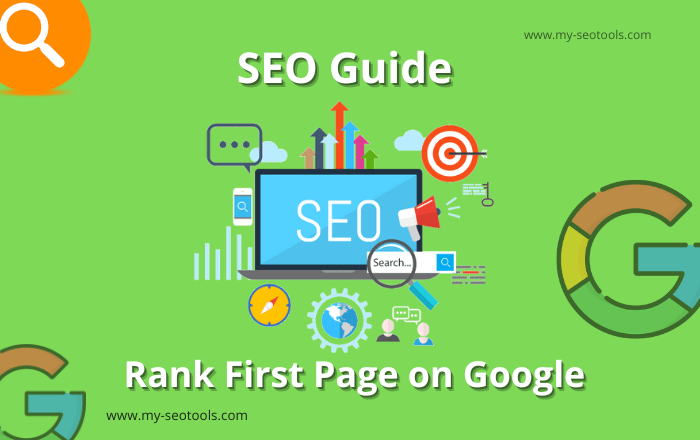Page Authority Checker
About Page Authority Checker
The Page Authority Checker helps you to know the PA Score of a website's page. It is a free tool that just needs you to enter the link of your page and click the action button to get the Page Authority. It is a tool to calculate the key website ranking and rating factors for just a single page or in other words just for a single URL of your website.
How to use Page Authority Checker Tool?
To use Page Authority Checker:
- Enter a domain name with the " https:// " then
- Click Check
What is Page Authority?
Page Authority (PA) is a metric developed by Moz that predicts how well a specific page will rank in search engine results pages (SERPs). Page Authority is calculated on a logarithmic scale from 0 to 100. The higher the Page Authority score, the more likely a page is to rank well in search engine results.
PA takes into account various factors, such as the quality of content, the number of incoming links, and the relevance of the page’s content to the search query. Essentially, PA is a measurement of how authoritative and trustworthy a webpage is on search engine.
Suggested read: Top 15 Free Keyword Research Tools
Why is Page Authority important?
Page Authority is important because it is an SEO metric that predicts the ranking potential of a webpage on search engines, particularly Google. The higher the page authority, the more likely the page is to rank higher on search engine results pages (SERPs).
Suggested read: 7 Proven Steps To Grow Your Domain Authority
How is Page Authority scored?
Page Authority is scored on a logarithmic scale from 0 to 100. This means that it’s much easier to increase your Page Authority from 10 to 20 than it is to increase it from 70 to 80.
PA is calculated based on a combination of metrics, including the number of high-quality backlinks to the page, the quality of the content on the page, and the relevance of the page’s content to the search query.
How to Check Page Authority
There are several tools on the internet you can use to check PA, however, we recommend any of the following page authority checker tools:
- Recommended: Page Authority Checker 1
- Recommended: Page Authority Checker 2
What is a “good” Page Authority?
A “good” PA score is relative to your industry and competitors. For example, a PA score of 30 may be considered good in a less competitive industry, but it may not be good enough to rank on the first page of search engine results in a more competitive industry.
Generally speaking, a PA score of 50 or above is considered a strong score. Pages with a score of 60 or above are typically considered highly authoritative and are more likely to rank well in search engine results.
Suggested read: 14 Ultimate Tips for Domain Name Buying & Selling
Suggested read: Complete Guide to Domain Flipping
How to Increase Page Authority (PA)
A higher PA means your page has a better chance of ranking higher on search engine result pages (SERPs). Here are some tips to increase your PA:
1. Improve On-Page SEO:
One of the most important things you can do to increase your Page Authority is to improve your on-page SEO. This includes optimizing your title tags, meta descriptions, headers, and content to ensure they are relevant to your target audience and contain the keywords you want to rank for.
2. Build Quality Backlinks:
Backlinks are a crucial factor in determining Page Authority. The more high-quality backlinks you have pointing to your website, the higher your PA will be. However, it’s essential to note that not all backlinks are created equal. Focus on building high-quality, relevant backlinks from authoritative websites in your industry.
3. Focus on User Experience:
Search engines prioritize websites that provide a great user experience. To increase your PA, focus on improving user experience by making your website fast, mobile-friendly, and easy to navigate. Additionally, create high-quality, engaging content that provides value to your audience.
4. Internal Linking:
Internal linking is another way to increase Page Authority. By linking to other relevant pages on your website, you can improve the user experience and help search engines better understand your website’s structure and content. Additionally, internal linking can help distribute PA throughout your website, increasing the PA of all pages.
5. Fix Broken Links:
Broken links can negatively impact your PA by indicating to search engines that your website is not properly maintained. To improve your Page Authority, regularly audit your website for broken links and fix them promptly.
6. Be Active on Social Media:
Social media may not directly impact Page Authority, but it can indirectly affect it by driving traffic to your website. By being active on social media and sharing your content, you can increase your website’s visibility and attract more backlinks.
Also read: 6 Reasons Why you Should buy a Custom Domain
Page Authority vs Domain Authority
PA and DA are both metrics developed by Moz to predict how well a webpage or website will rank in search engine results. However, there are some key differences between the two:
- PA is a measurement of how well a specific webpage will rank in search engine results, while Domain Authority is a measurement of how well an entire website will rank.
- PA takes into account factors specific to the webpage, such as the quality of content and number of backlinks, while Domain Authority takes into account factors specific to the website as a whole, such as the number of high-quality backlinks to the website.
- PA can fluctuate more frequently than Domain Authority, as changes to the webpage’s content and backlink profile can have a more immediate impact on Page Authority.
Suggested read: Domain Auction and Domain Bidding Process
Continue reading: How to Increase Page Authority – Ultimate Guide











